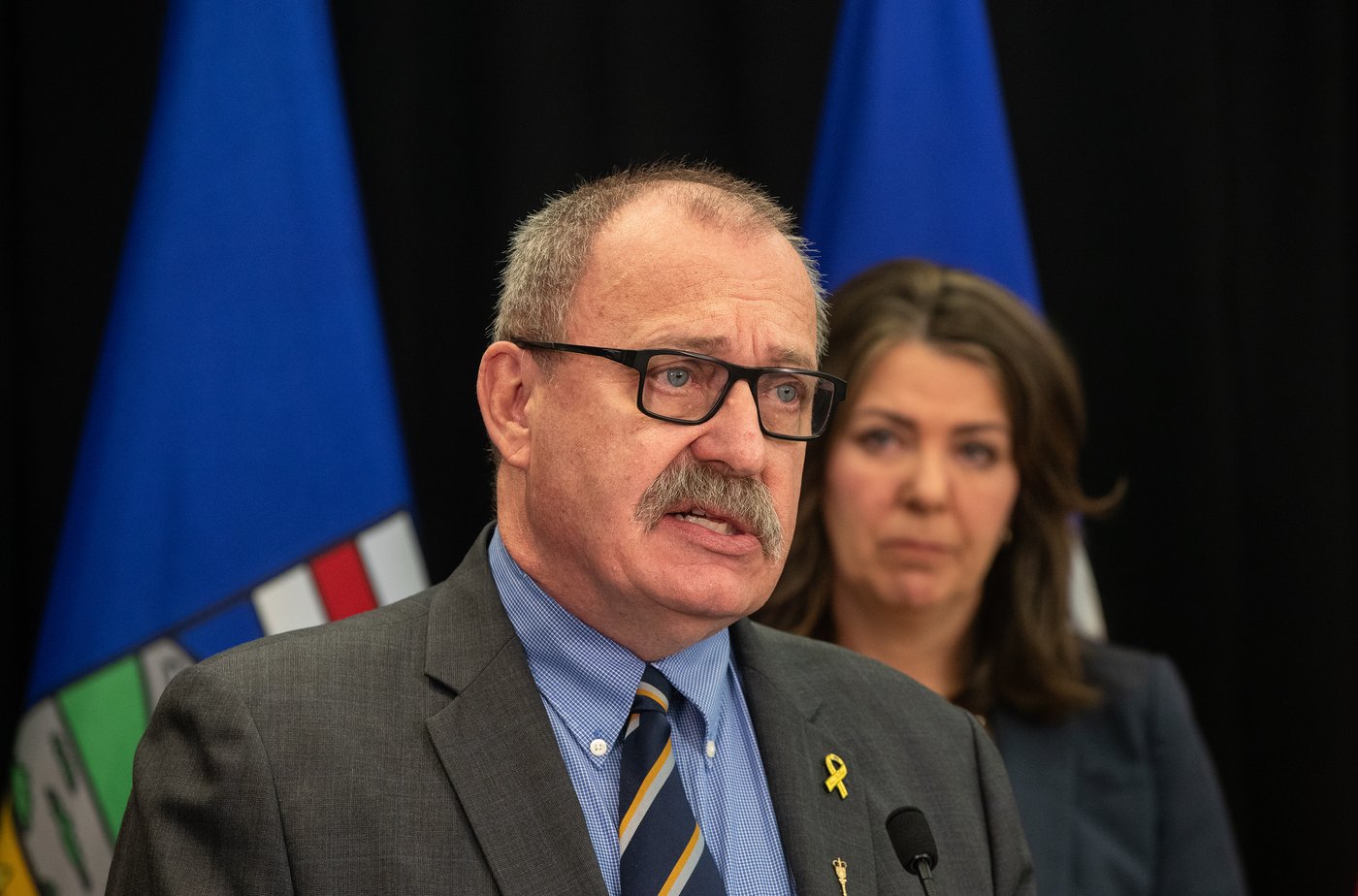EDMONTON — Nine members of Premier Danielle Smith’s United Conservative Party caucus are facing recall petitions – enough to potentially tip the balance of power in the legislature.
Elections Alberta confirmed Monday that signature collection can begin for six more UCP members, including cabinet ministers Rajan Sawhney, Myles McDougall, Dale Nally and R.J. Sigurdson.
Petitions are also approved for Ric McIver, Speaker of the house, and Muhammad Yaseen, associate minister for multiculturalism.
All six could not be immediately reached for comment.
Elections Alberta previously approved petitions to recall Education Minister Demetrios Nicolaides, backbencher Nolan Dyck and deputy Speaker Angela Pitt.
The approval process allows those behind each campaign to collect signatures in their constituency over three months and, if they collect enough, a vote is held on whether the MLA keeps their seat.
It’s a long process, but if all nine MLAs are defeated in constituency votes, Smith’s government would lose its majority status.
The UCP has 47 members in the 87-member house. The Opposition NDP has 38, and two former United Conservatives sit as Independents after being estranged from the governing caucus earlier this year.
The members under recall represent various constituencies from Grande Prairie in the north to Highwood in the south. Five represent the Calgary area,
The petitioners have given various reasons.
The one petitioning Nicolaides has said it’s because he has failed to support the public education system. The person collecting signatures against Pitt says she has generally failed to communicate and represent her constituents in Airdrie-East.
The petitioner against Dyck has said it’s because he has ignored concerns of constituents and voted along party lines to use the Charter’s notwithstanding clause to end the recent provincewide teachers strike.
Nicolaides, Pitt and Dyck have publicly rejected the claims and labelled the campaigns as being about disagreements over government policy rather than more pressing issues, like breaches of public trust or other forms of misconduct.
Smith has said she’s talking to caucus members and other officials about making changes to the province’s Recall Act.
The premier told reporters last week she’s concerned the grassroots spirit of the law is being abused, perhaps through online fundraising and even foreign interference.
The recall process was brought in under former UCP premier Jason Kenney.
Under the act, a petitioner must submit a reason in 100 words or less about why they feel a legislature member should be recalled. The person must live in the constituency and pay a $500 processing fee. There is no set criteria on what the reasons can be.
The applicant then has 90 days to collect enough names from people in the constituency. The number must be equal to 60 per cent of votes cast in the constituency in the 2023 election.
If enough signatures are collected and verified, a constituency-wide vote is held within four months to determine whether or not the MLA should be recalled. If more than half vote yes, the member is removed from the job and a byelection is held.
This report by The Canadian Press was first published Nov. 24, 2025.
Jack Farrell, The Canadian Press











